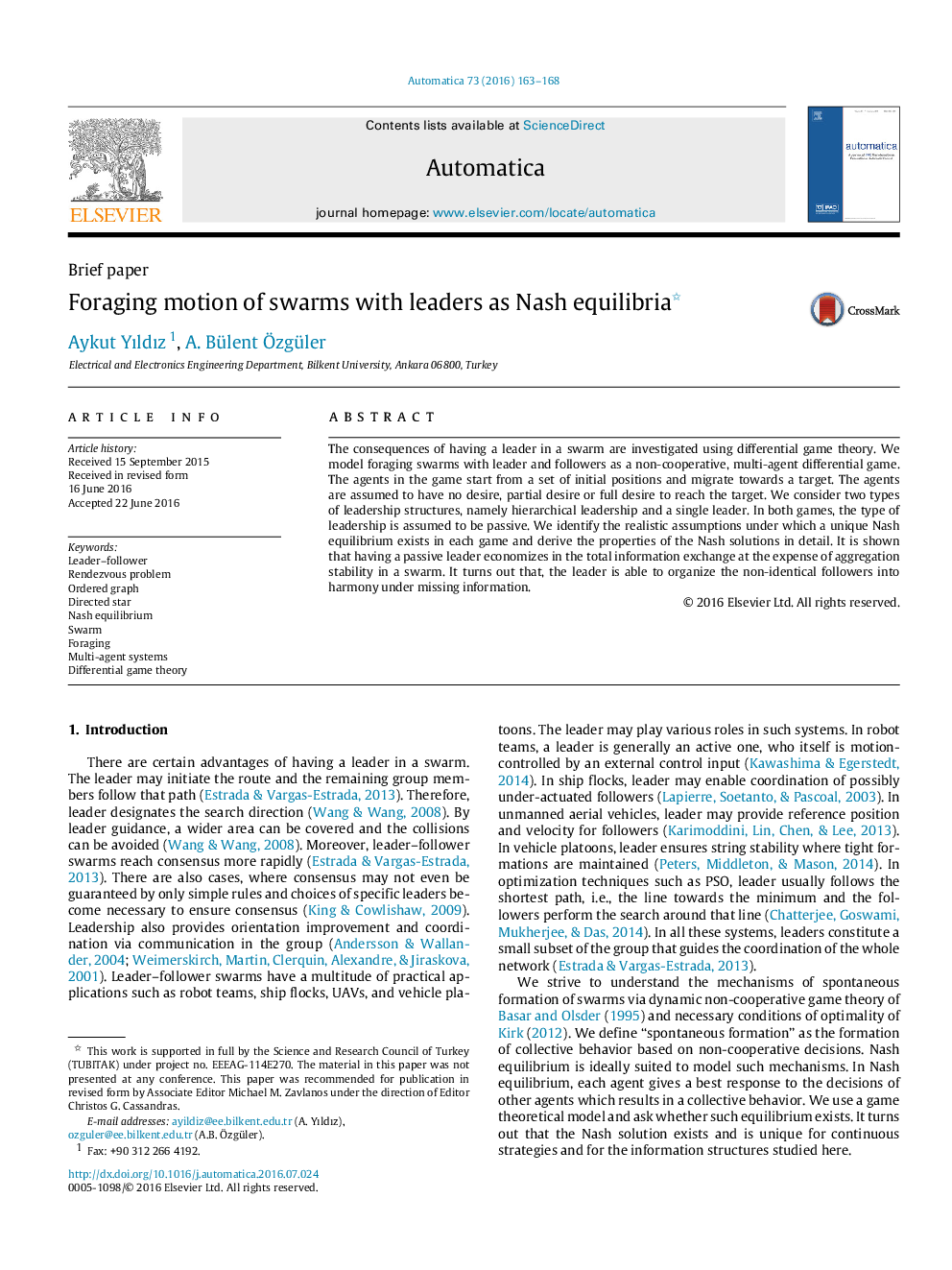| Article ID | Journal | Published Year | Pages | File Type |
|---|---|---|---|---|
| 4999947 | Automatica | 2016 | 6 Pages |
Abstract
The consequences of having a leader in a swarm are investigated using differential game theory. We model foraging swarms with leader and followers as a non-cooperative, multi-agent differential game. The agents in the game start from a set of initial positions and migrate towards a target. The agents are assumed to have no desire, partial desire or full desire to reach the target. We consider two types of leadership structures, namely hierarchical leadership and a single leader. In both games, the type of leadership is assumed to be passive. We identify the realistic assumptions under which a unique Nash equilibrium exists in each game and derive the properties of the Nash solutions in detail. It is shown that having a passive leader economizes in the total information exchange at the expense of aggregation stability in a swarm. It turns out that, the leader is able to organize the non-identical followers into harmony under missing information.
Related Topics
Physical Sciences and Engineering
Engineering
Control and Systems Engineering
Authors
Aykut Yıldız, A. Bülent Ãzgüler,
